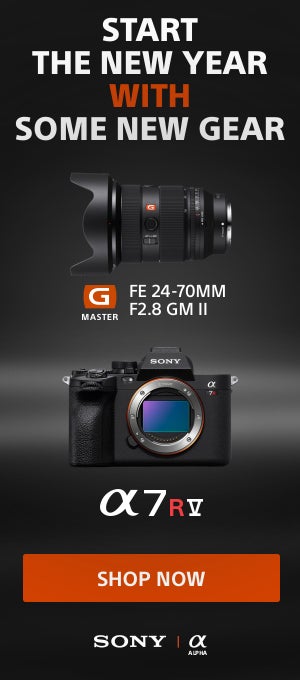Shooting portraits outside against harsh light can be challenging, but Sony Artisan and professional portrait photographer Miguel Quiles has perfected the process. In this video, Quiles takes the new Sony Alpha 9 III outdoors for a portrait session using off-camera flash. “And what’s great with the Alpha 9 III,” he says, “is that you have so many options in terms of your shutter speed to bring down that ambient light.” Watch below as he explains how he does it and see more videos like this one on the Sony Alpha Universe YouTube Channel. Learn more about the Sony Alpha 9 III HERE.
Sony Artisan and professional portrait photographer Miguel Quiles takes the new Sony Alpha 9 III outdoors for a portrait session using off-camera flash.
“The first thing that you have to understand when you’re shooting with an off-camera flash, is that your camera settings is what controls the available or ambient light wherever it is that you’re shooting. What’s really amazing with the Alpha 9 III is that you can actually go up to 1/80000-sec. – that’s an eight and four zeros, all right? Huge number. And what you’re able to do with that is, you could actually knock down the ambient exposure so you can make it look dark, to where it’s actually very bright.”
You can see in the video how Quiles is shooting in the middle of the day against harsh light, but with the shutter speed, he’s able to overpower the ambient light and then introduce a flash. “For the lighting, I’m actually using a Westcott FJ400 – it’s a really powerful strobe. I use it for indoor studio stuff, but it’s got a battery pack so you could actually take it outdoors and use it for that as well. Using the FJ-X2m remote to fire off that flash. So whatever flash system it is that you’re using, make sure you have the remote that actually pairs up with that light.”
In this case we’re not using high-speed sync, we’re just using the normal sync speed that this flash offers. I’ve got it going through a white translucent umbrella. This is really, really nice for outdoor shoots because it does kind of spread the light really nicely, really softly, which is what we want.”
During the portrait shoot, Quiles uses his camera settings to underexpose the ambient light. He has the Sony Alpha 9 III paired with the Sony 35mm f/1.4 G Master. “I’m shooting this at an f/1.8, and I’m doing that specifically because at f/1.8 I’m actually able to go up to 1/80,000-sec.,” he explains. “If I go less than that, let’s say I go to 1.6, 1.4, then the max shutter speed I can hit is 1/16,000-sec., which still looks really good, but 1/80,000-sec. should look a little bit better.”
Quiles first takes an image of his subject with the flash off to see how the ambient light looks. If it’s good to go, then he turns on the flash and dials in his settings. “With the Alpha 9 III, even if you’re using an off-camera flash, there are still some things that you have to make sure you adhere to. The biggest one is that your camera settings are going to control your ambient light. So you’re going to use your shutter speed, your ISO and your aperture to make sure that you’re getting a really nice basic exposure for whatever environment you’re shooting in. That usually will have the subject either in complete shadow, or it is going to put them to where they’re a little bit underexposed. And that’s when your flash comes in. Once you have the base settings on your camera, you turn on your flash, you could dial that up or down.”
Learn more about the Sony Alpha 9 III HERE.
See more videos like this one on the Sony Alpha Universe YouTube Channel.


